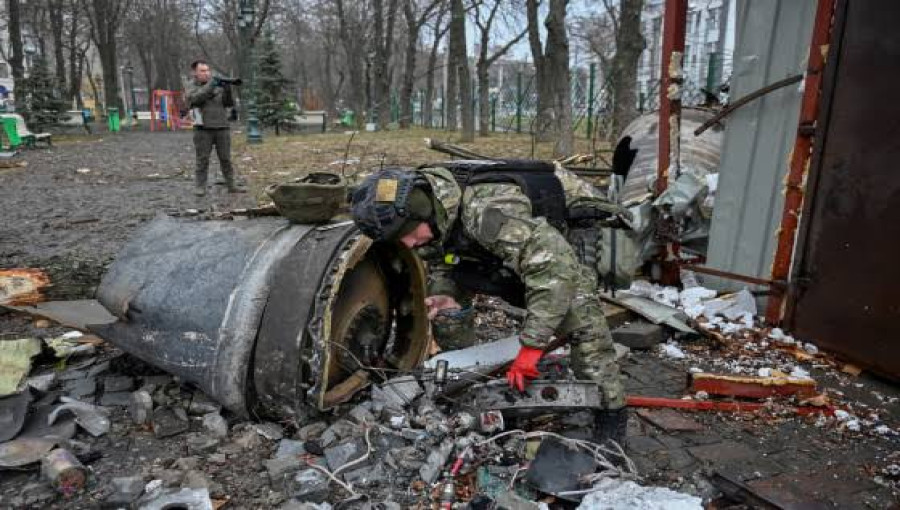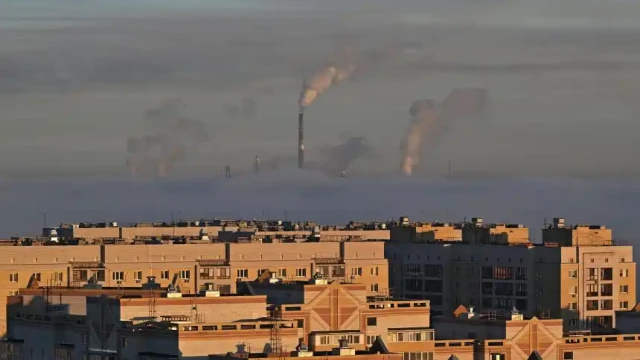KYIV, UKRAINE, NOV 24 (V7N)– Ukrainian officials have revealed that a staggering third of Russian ballistic missile strikes on their territory this year involve North Korean-made KN-23 missiles powered by Western electronics. Despite strict international sanctions, critical components from US, European, and other Western manufacturers are being used to guide these weapons, raising serious questions about enforcement and accountability.
Since the spring, Russia has ramped up its use of ballistic missiles and drones, shifting away from cruise missiles, according to Yuriy Ignat, acting head of communications for Ukraine’s Air Force. Among the 194 ballistic missiles Russia has launched in 2024, nearly 60 KN-23s—originating from North Korea—have been confirmed.
Investigations by Ukrainian officials and independent researchers reveal that up to 75% of the KN-23 missile components analyzed are sourced from US-based companies, with additional parts traced to manufacturers in Germany, Switzerland, and the Netherlands.
“All the electronics are foreign. There is nothing Korean except the corroding metal,” said Andriy Kulchytskyi, head of Ukraine’s Military Research Laboratory.
These findings, corroborated by reports from Conflict Armament Research (CAR) and Ukraine’s Independent Anti-Corruption Commission (NAKO), point to a sophisticated supply chain involving Chinese intermediaries. Parts produced as recently as 2023 suggest a rapid and ongoing pipeline to North Korea.
Experts believe Chinese firms play a key role in diverting Western-made electronics to sanctioned regimes like North Korea.
“We traced components to Chinese companies, which bought them through intermediaries,” said CAR’s Deputy Director Damien Spleeters. However, CAR has refrained from naming specific manufacturers, emphasizing that diversion typically occurs downstream of production.
Despite sanctions, hundreds of microchips and electronic parts continue to be found in weapons recovered in Ukraine, stored in warehouses where investigators meticulously trace their origins.
Ukrainian officials and international experts are urging stricter oversight of distributors and middlemen, who are often the weak link in export controls.
Vladyslav Vlasiuk, Ukraine’s commissioner for sanctions policy, expressed hope that the incoming Trump administration would take a tougher stance. “If manufacturers were held accountable for the quantity of microelectronics in Russian missiles striking Ukraine, they’d likely act more decisively,” Vlasiuk said.
The US Senate Permanent Subcommittee on Investigations has also criticized manufacturers for inadequate compliance practices, emphasizing the need for better vetting of distributors.
The consequences of these findings extend beyond Ukraine. North Korea’s weapons have not only killed dozens in Ukraine but also highlight a broader challenge of enforcement against countries like Russia and Iran, where similar Western components have been discovered.
With sanctions circumvented through complex networks, experts warn that failure to address these loopholes risks undermining global efforts to curb illicit arms development.
As the war intensifies and missile attacks continue, the spotlight remains on Western governments and companies to close the gaps enabling sanctioned regimes to fuel their arsenals.
END/WD/RH

























Comment: